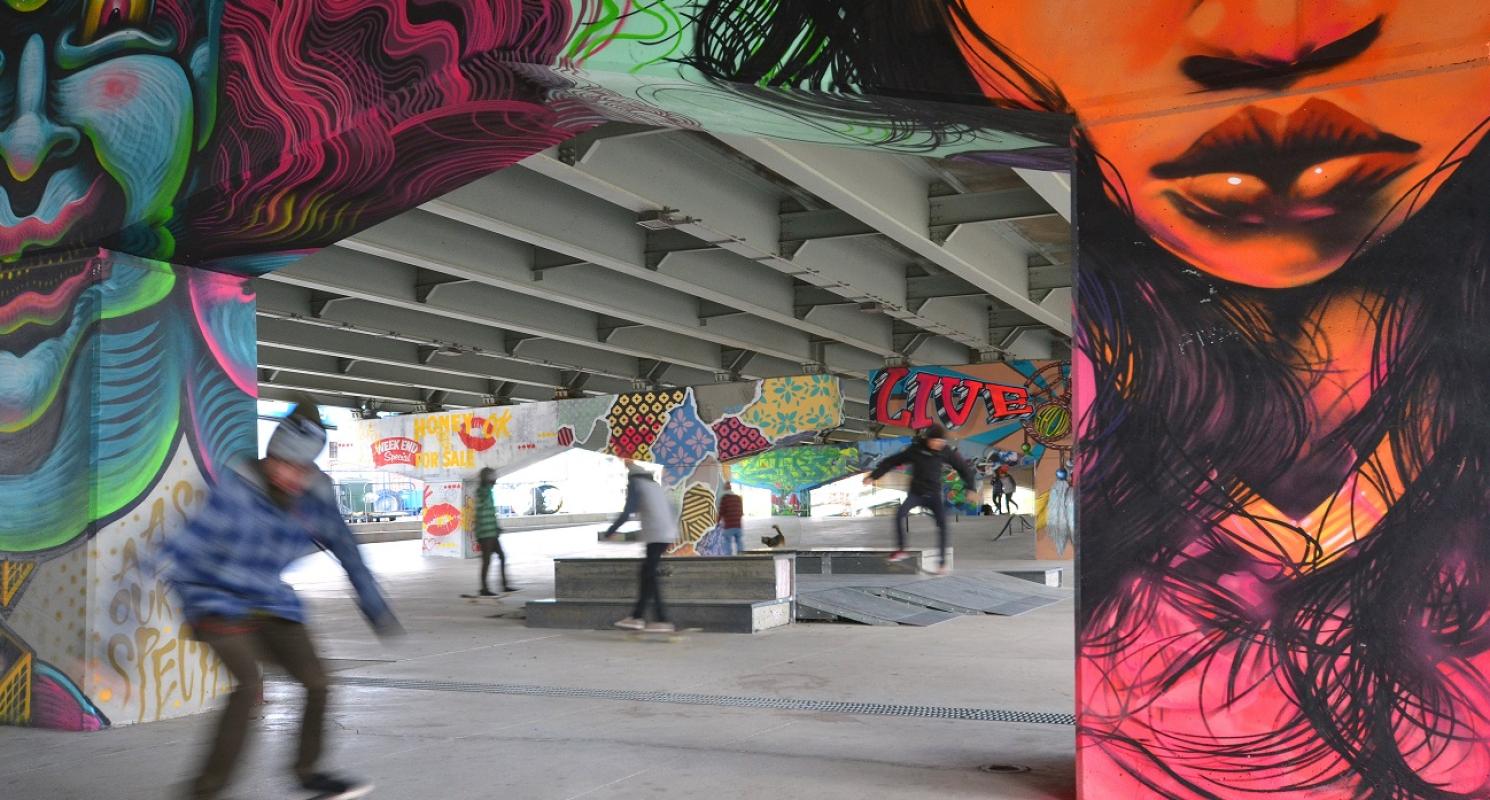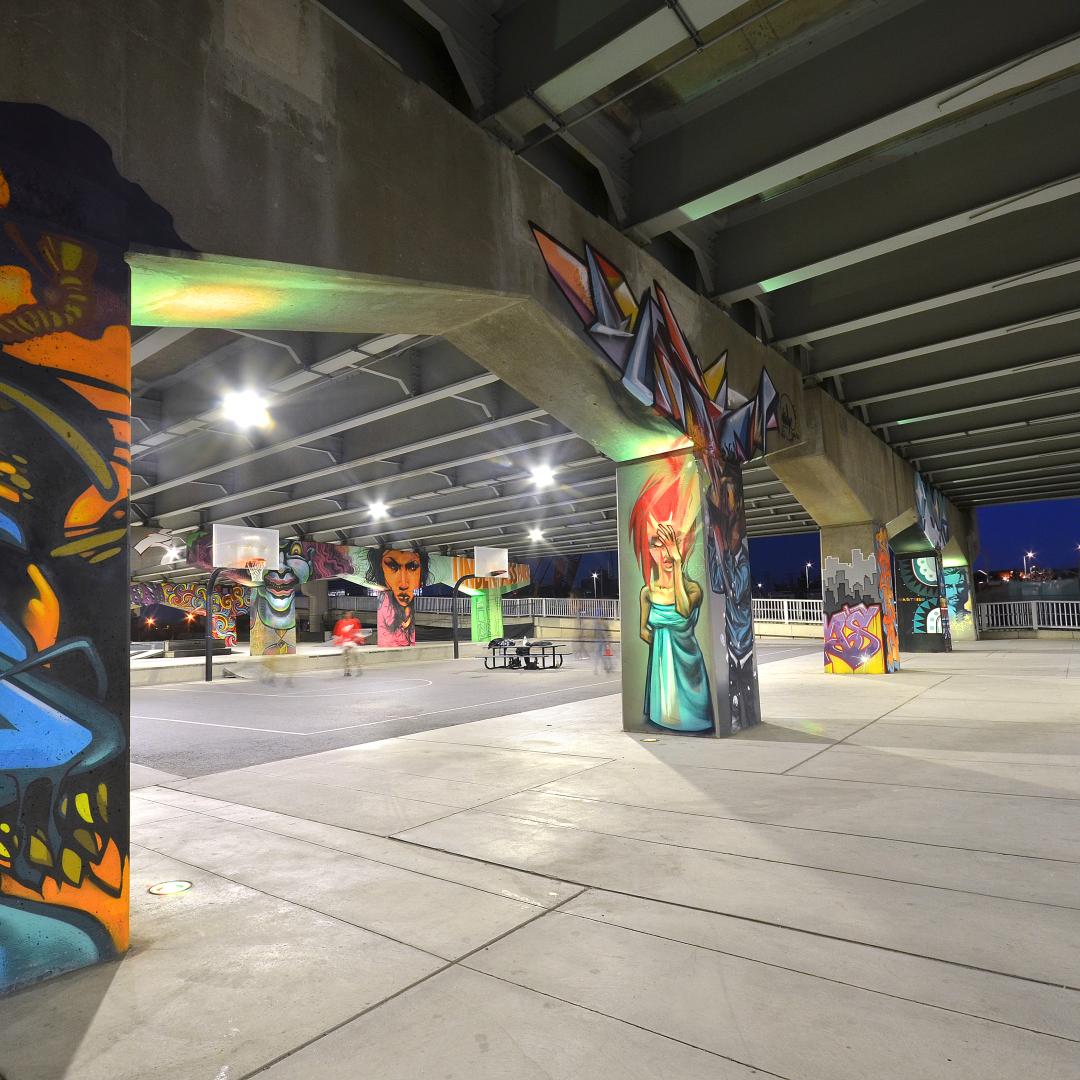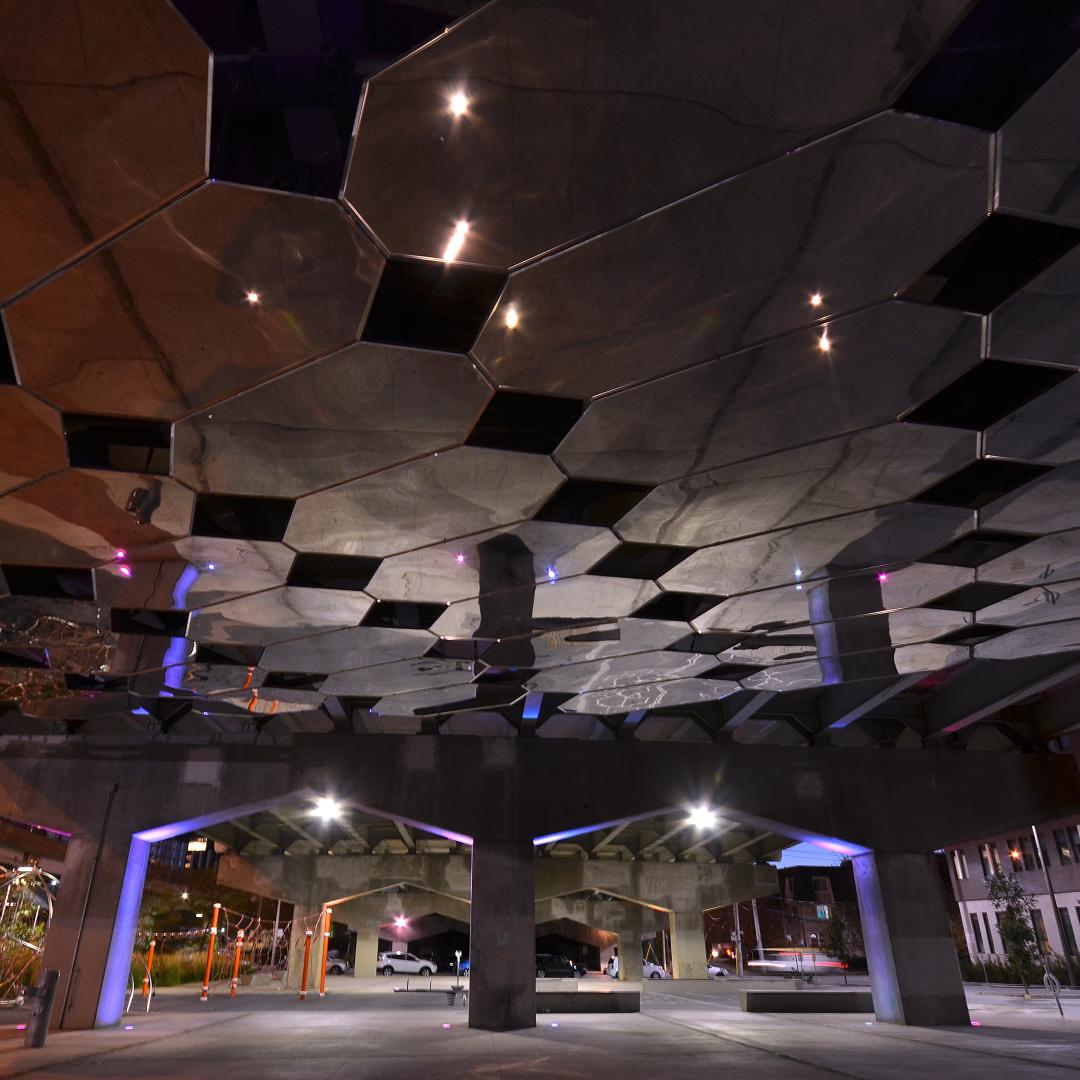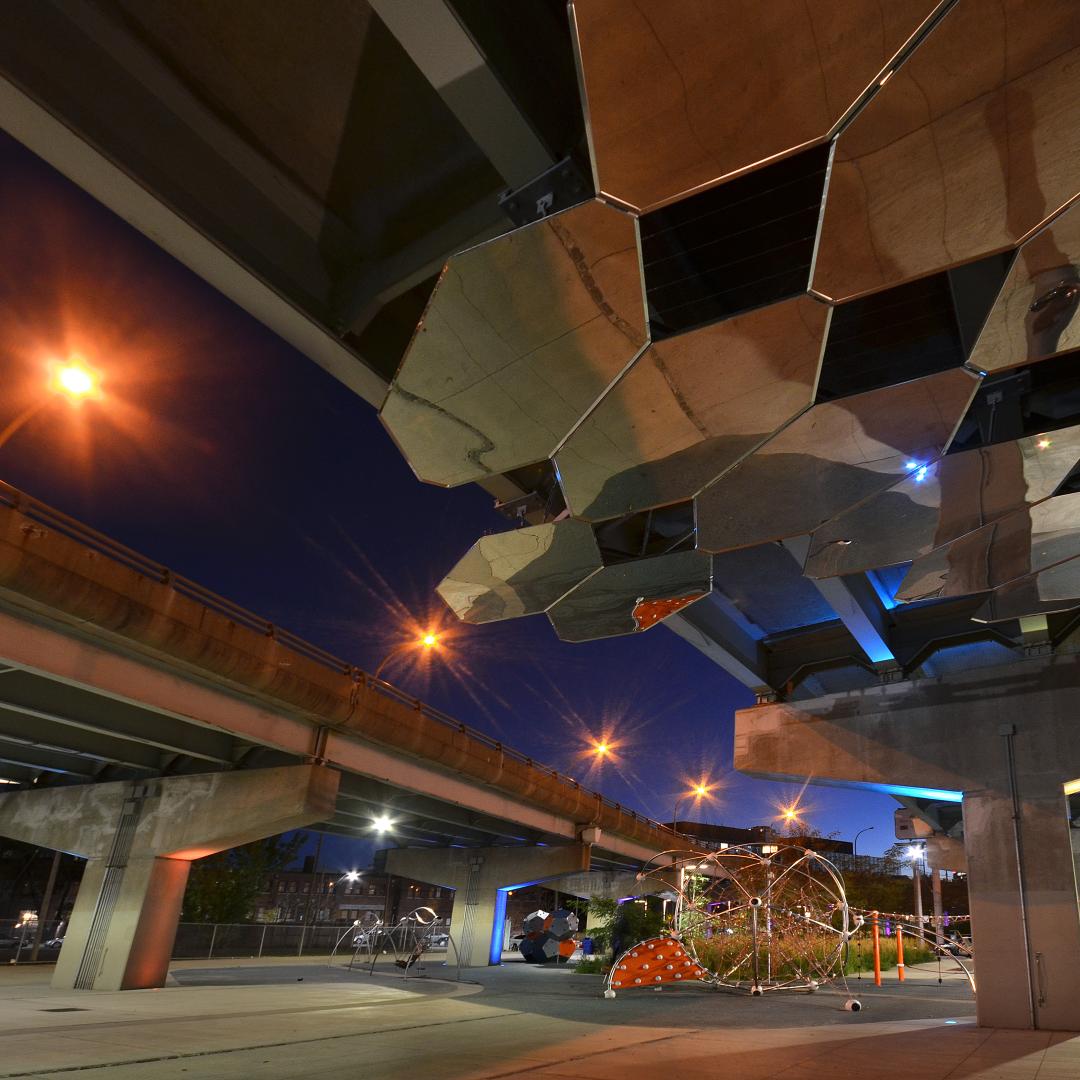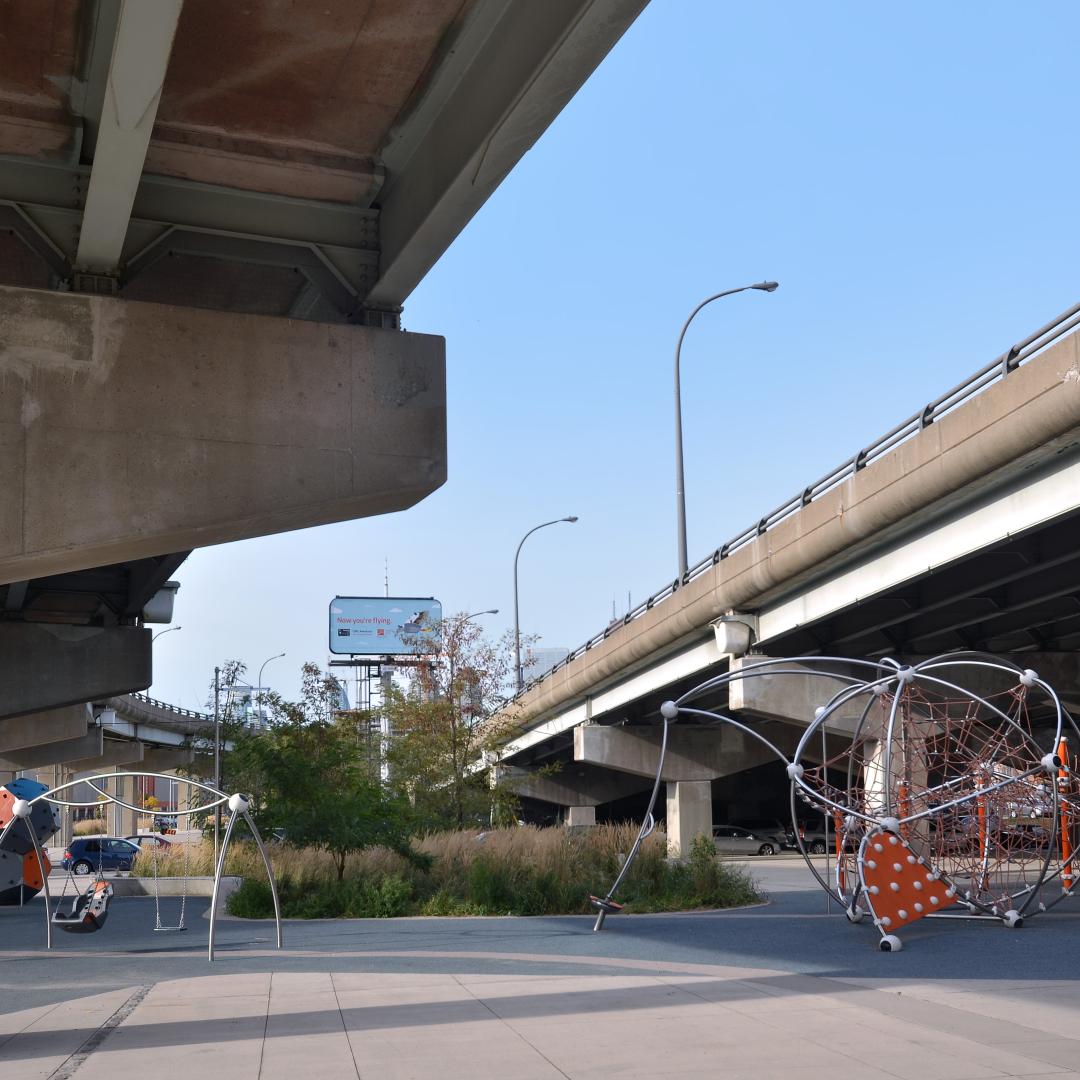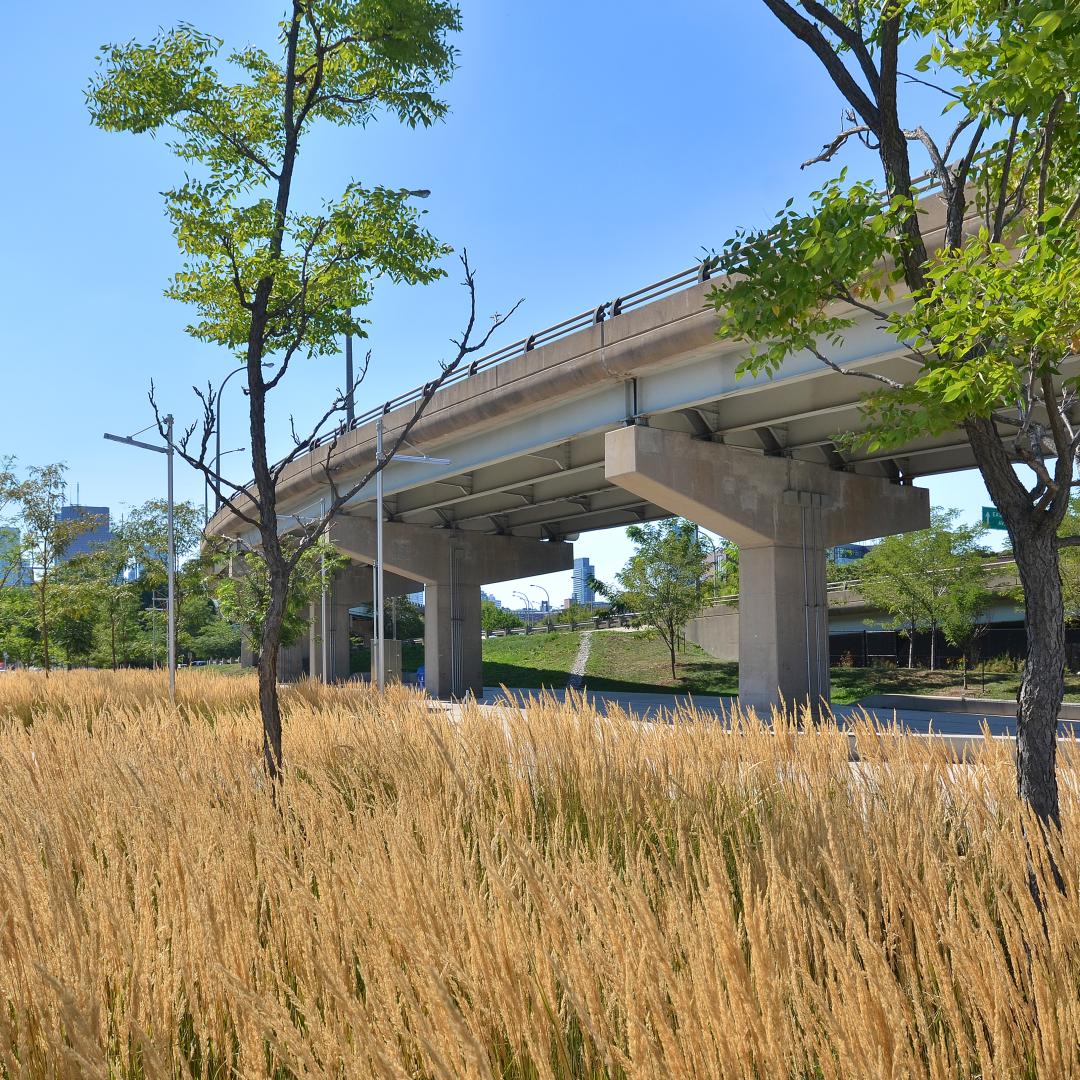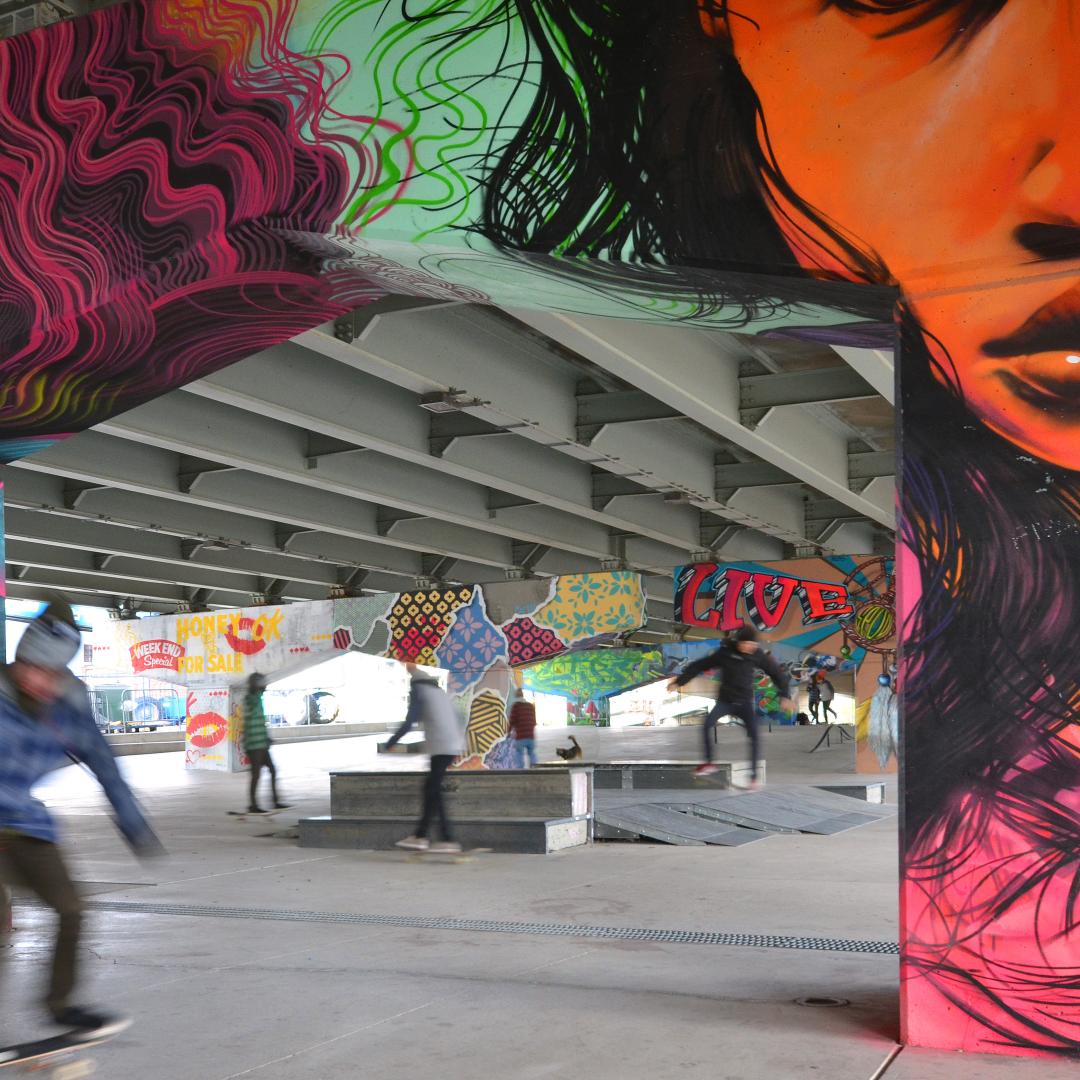Underpass Park
Underpass Park transformed derelict and unused space beneath a series of overpasses into a unique community park.
Underpass Park, located under and around the Eastern Avenue, Richmond and Adelaide overpasses, is the most extensive park ever built under an overpass in Canada, and the first ever in Toronto.
Constructed in two phases, the first completed sections of the park are between St. Lawrence Street and Bayview Avenue. The second phase of the park, on the west side of St. Lawrence Street, opened in 2015.
Designed by landscape architects PFS Studio with The Planning Partnership, Underpass Park is part of an ongoing effort to transform pockets of neglected urban spaces on the waterfront into valued public amenities.
Quick Facts
From Uninviting to Welcoming
Designed to transfrom derelict and underused space, the park takes full advantage of the concrete beams and columns of the overpasses to create a unique and inviting commmunity asset and provide year round weather protection.
This bright new urban park will give residents of the West Don Lands and adjacent communities safe and beautiful ways to connect between the north and south sections of the neighbourhood.
Playground and Recreational Space
A sizeable playground is located in the middle section of the park, between St. Lawrence St. and River Street. With a teeter-totter, hopscotch, 4-square, swings and playful climbing structures, the playground offers something for all ages. The area also includes a series of park benches and flexible community space that can be used for markets, festivals and seasonal public events.
The eastern-most section of the park, east of River Street, includes two basketball half-courts, and an extensive skatepark featuring a series of obstacles, rails and ledges. There is also a flexible open space that can be used for community events.
Innovative Public Art
Public art plays a critical role in Underpass Park. Mirage, by Paul Raff Studios, uses reflectivity to draw people into and through the space. Mirage engages the public through the playful use of reflection by bouncing light around the space in an interesting and sculptural way.
When planning the overarching public art strategy for the West Don Lands, Underpass Park was identified as a high priority public art opportunity. In late 2009, Waterfront Toronto launched its first ever artist competition and selected Paul Raff.
Learn More
One of the park’s key design features is a series of long, narrow ribbon-like strips made from a palette of concrete and ipe wood. These ribbons, located throughout both the covered and uncovered areas of the park, rise from the ground creating informal park benches and gathering spaces for visitors.
Influenced by both the physical infrastructure of the overpasses and the natural qualities of the nearby Don River, the ribbons are illuminated by colourful lights at night.
VIDEO: Underpass Park Opening
Watch the official Underpass Park opening video.
VIDEO: Toronto's new hot spot
Watch the exclusive preview of Toronto's Underpass Park with The Star's Christopher Hume.
Design and Safety
To ensure the area is safe and inviting at all times of day, the design places a strong emphasis on lighting ensuring the park is safe and inviting. The park is lit using a combination of LED lighting on the columns, in-ground and in-wall lights and illuminated concrete ribbons. Diffuse LED spotlights are also strategically placed to colourfully light the more than 50 overpass columns.
Environmental Sustainability
Underpass Park is part of Waterfront Toronto’s Stage 1 Gold certification under the LEED for Neighbourhood Development (ND) pilot program. Some of the sustainability best practices incorporated into the park’s design include energy efficient LED lighting; drought, salt and shade tolerant planting for minimal maintenance and irrigation; recycled content on play surfaces, and the use of reclaimed granite cobblestone.
Phase Two
The second phase of Underpass Park is located west of St. Lawrence, provides an opportunity to add much needed green space to the park. A dense grove of salt and drought resistant trees, grass and other plantings add a natural element to the park. Eventually, community gardens will make up a significant part of the southwestern edge of the park.
Related Documents
VIEW MATERIALS

